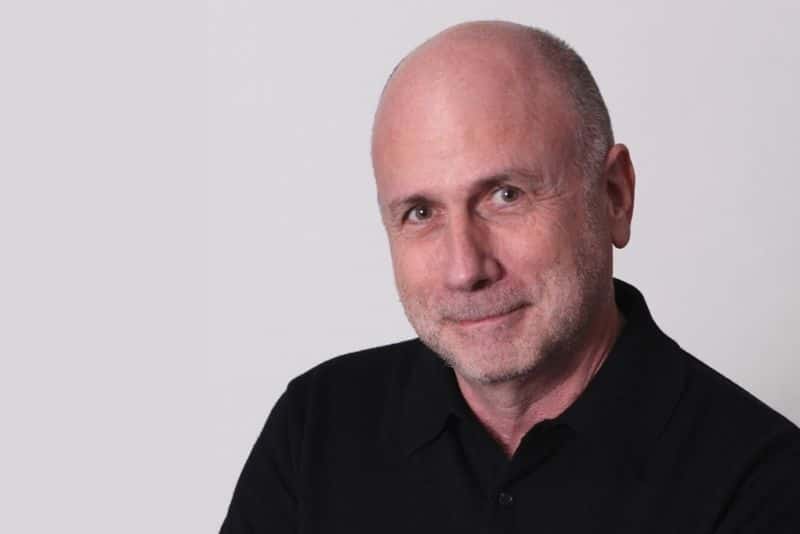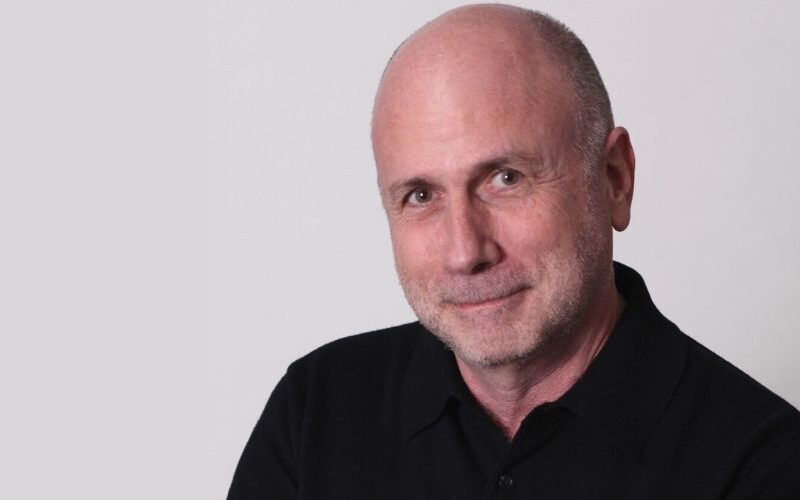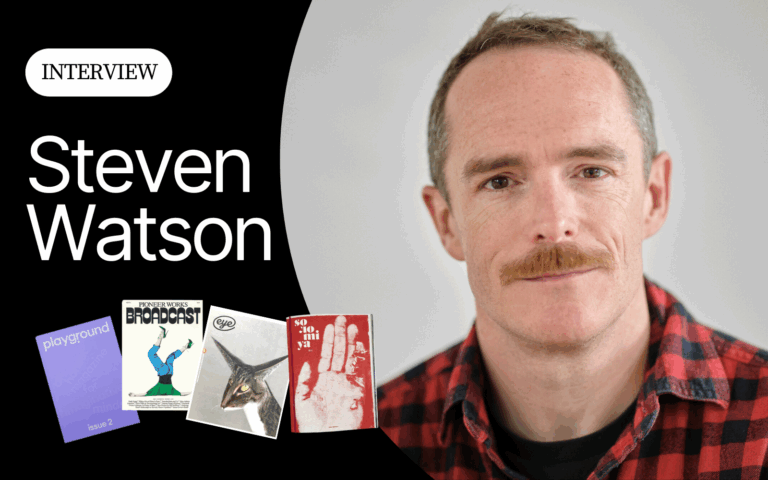Former Creative Director of Apple, Ken Segall, is credited with naming the iMac and driving the legendary ‘Think different’ campaign.
Intending to reignite and redefine Apple’s image, Ken’s marketing campaign saved Apple from the brink of bankruptcy in 1997, propelling them to one of the most valuable companies in the world.
Also working as the Creative Director for multiple industry-leading organizations worldwide, like NeXT, Intel, Dell, and IBM, Ken constantly applies Steve Jobs’ legacy of simplicity to lead companies to success.
In this exclusive interview conducted by Champions Speakers for The Branding Journal, Ken offers his expert insight into how branding and marketing have changed during these unprecedented times. Plus, he provides career advice for aspiring marketers and talks about the qualities of successful leaders.
Proven Systems for Business Owners, Marketers, and Agencies
→ Our mini-course helps you audit and refine an existing brand in 15 days, just 15 minutes a day.
→ The Ultimate Brand Building System is your step-by-step blueprint to building and scaling powerful brands from scratch.
Table of Contents
1. In your opinion, what impact has COVID-19 had on branding and marketing?
“The impact of COVID on marketing – interesting. I think about my immediate life and how I might have been working in an office with a bunch of people devising marketing plans, and then I realize that people are doing that now, but they’re doing it virtually. It’s hard for me to imagine working in that kind of way.
Still, I do think because so many more people are online, it does raise all kinds of new possibilities, and that’s the beauty of this world – whatever the trend is, entrepreneurs find ways to develop and take advantage of the trends.
So, with more and more people being online and connecting, I think there are opportunities for marketers to change the way they talk to people.
I have always put my faith in smart, creative people, and that will never change. Whatever the challenge is, the smart and creative people will always find ways to thrive in that environment.”
2. Would you say simplicity is now more important than ever because of coronavirus?
“I’ve always thought that the concept of simplicity was important before coronavirus, and I continue to think that after.
To me, it is one of those universal things that imply to all people at all times. It’s built into every human being that we prefer a simpler experience to a more complicated one.
So, I think again in this new environment there are new ways for people to take advantage of the power of simplicity. It will always be attractive if you can present customers or employees or whoever with a simpler way to absorb what you’re trying to say or what you’re trying to sell.
There are always interesting new ways to do that, and sometimes I imagine Steve Jobs if he were still alive, what would he be doing in certain circumstances. I think the principles that drove him – simplicity being one of them – would always be applicable.
I think there are universal things that really don’t change all that much, even though world events may change rather dramatically.”
3. How can brands stand out in such a competitive market?
“I think any brand looking to stand out at any time really has to pay attention to the basics, and one of them is truly understanding your audience and understanding [what] their wants and desires are, and connecting with them on some kind of emotional level, so it’s not just a transaction.
Having worked with different companies with different philosophies, that was one of the things that always struck me – the difference between say Apple and Dell. We never had any conversations at Dell about making emotional connections with people, and that was almost all we talked about at Apple.
So, it’s really a question of building loyalty which you want to do in any environment, and to do that, you have to really respond to people’s values, and you have to project your own values to attract like-minded people.
When you connect with your values, it isn’t just a fleeting thing like a single transaction based on money; it’s more of an attachment thing, so it helps you in the present – but more importantly, it also creates loyalty.
This is something people don’t really think too much about, with the way Steve Jobs worked.
Back at the beginning, when the company was struggling, when Steve returned, he did a lot of things that had long-term effects, and at the time, people thought it was a waste of money, but he was trying very consciously to build this eco-system one little step at a time. Suddenly, Apple has this eco-system that draws people in and keeps people in, and this was part of his long-term plan done through connecting with people on an emotional level.”
4. What qualities make a good leader?
“This is a very interesting question because I use my own experience, just as a guy who used to work in ad agencies.
I had some leaders who were kind, understanding, supportive, they would show up at our parties, and we were sort of a big family. I’ve also worked with leaders who were aloof and demanding and not interested in that kind of relationship, and there’s a certain intimidation that comes along with that.
I see the value in both approaches, to be honest.
I’ve always thought when people, especially creative people, are given too much leeway, it doesn’t light that fire under you like when you work for a demanding leader. You need a little bit of a threat hanging over your head, and the degree to which that is a good thing is debatable. But again, I go back to Steve Jobs, he was very demanding, and you did feel like if I don’t do something good, my job could be in jeopardy. But it was also thrilling because he had such high standards, and when you were able to please him with your work, it felt like a real accomplishment, and you’d see that your work had a real impact in the world and you appreciated being part of that.
I have also worked with people who had all the bad parts without the good parts, and those were the times in my life where I finally had to say, ‘you know what, there’s probably a better job somewhere else in the world’ and I moved on.
So, I do think it is important for a leader to be inspirational, charismatic, who always helps, and I think demanding is a very good thing. But able to communicate, total honesty, tell you what you’re doing right and what you’re doing wrong. You’re on the same team, you both want each other to succeed, and I think some leaders are too cruel, shall we say. Hence, you come to resent them and, as demanding as Steve Jobs could have been, I never resented him being the boss because he was inspiring in many ways; you wanted to succeed on that level. I think a great leader embodies those characteristics without being oppressive.”
5. If you could give yourself one piece of advice at the start of your career, what would it be?
“You know what? I’m going to take the easy way out, and I will tell you the advice that was given to me at the start of my career because I had no idea what was to come.
In my very first job in advertising, I wasn’t even in the creative department; I was just a file clerk basically. I started talking to the creative leaders, and they gave me their advice: ‘Always care about the work, only work at great agencies on great products. Don’t worry about the money ever because if you succeed doing those things and do the high-quality work, the money will take care of itself in the end.’- I’m not sure if it quite did that for me, but it was a good idea!
I think it’s important to care about the work that you do to a very high degree – spend the late nights and the weekends, give it your all, and you’ll get good at what you do.
Actually, when I started as a writer in advertising, I was not very good, I didn’t get it at all, and I just sort of immersed myself in it. I watched everything that was going on around me, and I dedicated myself to learning the craft.
I never changed jobs based only on the money; for me, it was always about working on what I really believed in. I was mostly interested in technology, so I went to work only for the accounts I thought were really great like IBM and Apple in the old days when Steve Jobs wasn’t even there because it made me happy. It made me excited about going to work on a Monday morning.
That was my rule actually – if you go to work on a Monday morning and you’re kind of annoyed that you have to do it, you have to think twice about what you’re doing – you should be passionate about what you do.”

About our Interview Partner
Ken Segall can be booked for virtual events, conferences, and other speaking engagements via Champions Speakers.










